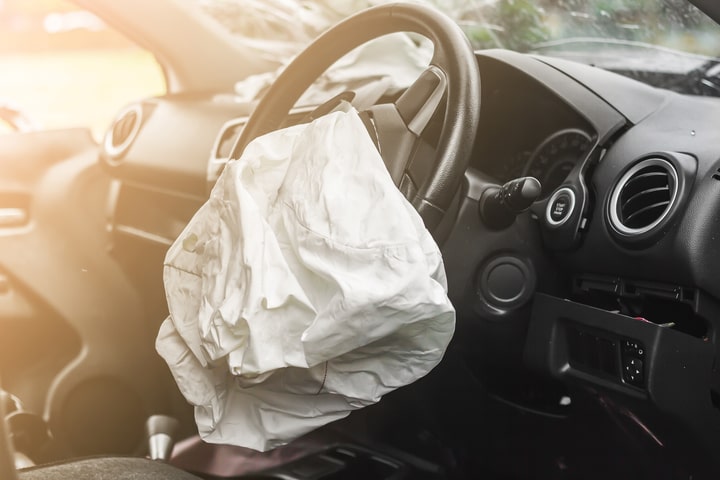
When you or a loved one gets into a car accident, you may not know where to turn.
The claims process may be intimidating, or maybe you have difficulty finding the medical care you need.
At Tawney, Acosta & Chaparro P.C., we’ve put together this guide to help you understand the basics of an insurance claim for a car accident in Texas.
Texas Auto Insurance Requirements
Like most other states, Texas requires all drivers on the road to have auto insurance. Essentially, auto insurance serves as proof that you can pay for damages if an accident occurs.
According to the Texas Department of Insurance, the state requires a minimum of 30/60/25 liability coverage. This coverage consists of:
- $30,000 for injuries to a single person,
- $60,000 for all injuries in a single accident, and
- $25,000 for property damage in a single accident.
There may be additional insurance coverage requirements depending on the circumstances.
For example, if you have an auto loan, your lender might require you to have comprehensive and collision coverage.
What to Do After a Car Accident in Texas
If you get into a Texas car accident, it’s important to stay calm and seek help. Here are a few steps to follow in case you find yourself in an accident.
- Call 911. Even if you don’t think you have any injuries, you should call 911. This helps guarantee that police file an accident report and ensures that you and other drivers and passengers receive medical attention.
- Collect evidence. If it’s safe to do so, try to collect as much evidence of the accident as possible. This may include photographs of your injuries, road conditions, and vehicle damage.
- Exchange insurance information. If you can, exchange insurance information with all the drivers involved. If another driver refuses to give their information, make sure to tell the responding officer.
- Contact an experienced attorney. While it’s possible to pursue a car accident claim on your own, we highly recommend contacting one of our attorneys. Cases involving serious injuries are complex and may involve months of negotiations with the insurance company.
By following these steps, you may have an easier time managing your claim and getting the treatment you need for your injuries.
Potential Damages in a Car Accident Case
Under CPRC § 41.001, victims of a car accident in Texas may seek three types of damages: economic, non-economic, and exemplary.
Economic and non-economic damages fall under the compensatory category and are pretty common in car accident claims.
However, exemplary damages are much rarer. Here’s a breakdown of each damage type.
Economic Damages
Special or economic damages make up the base of your car accident claim. In essence, economic damages are tangible losses that you can measure with bills or receipts.
Some of the most common economic damages included in a car accident claim are:
- Medical expenses,
- Property damage,
- Lost wages, and
- Reduced future earning capacity.
For example, if you have $15,000 in hospital bills, $10,000 in life wages, and $10,000 in vehicle damage, your total economic damages are $35,000.
This is why it’s important to hold onto any quotes, bills, or receipts you receive relating to your accident.
Noneconomic Damages
General or noneconomic damages, while an essential part of your claim, are more difficult to calculate than economic losses.
This is because noneconomic damages are the subjective, intangible losses you sustain due to your injuries, such as:
- Pain and suffering,
- Mental anguish,
- Loss of enjoyment in life,
- Loss of companionship,
- Loss of consortium,
- Permanent disability, and
- Disfigurement.
There are several ways an attorney may calculate noneconomic damages for your case.
For example, they may take your total economic damages and multiply them by a certain number. Or they may determine a dollar amount for your losses per day of recovery.
Whatever the case may be, your attorney will help find the most accurate calculation for your situation.
Exemplary Damages
The final type of damages, known as exemplary damages, isn’t always applicable to a car accident case.
Generally, courts award exemplary damages to victims when the defendant acts with gross negligence or with an intent to harm others. This sometimes includes cases of DUI, road rage, and more.
Currently, Texas law limits the amount of exemplary damages awarded in car accidents to the greater of:
- $200,000, or
- Two times the amount of economic damages, plus the total amount of non-economic damages up to $750,000.
If you believe that the other driver intentionally or recklessly hurt you, it’s important to let your attorney know. They’ll help determine if it’s possible to pursue exemplary damages in your case.
How Long Do I Have to File a Lawsuit?
If you get into a car accident in Texas, you have a limited amount of time to file a lawsuit. This time limit, called the statute of limitations, exists for most types of lawsuits.
Under CPRC § 16.003, victims have two years from the date of injury to bring an action against the responsible party. For a Texas fatal car accident, the surviving family has two years from the date of the victim’s death to file.
How Texas Negligence Laws May Affect Your Case
In Texas, negligence laws play a significant role in every car accident claim. This is because the state follows a modified form of comparative negligence.
Under this doctrine, the plaintiff may recover damages only if their share of fault is 50% or less. If the court finds you more than 50% at fault, you won’t receive an award.
However, if your share of fault is 50% or less, the court reduces your award by your percentage of fault. For example, if you have $100,000 in damages and are 20% at fault, your award would be $80,000.
Need Help with Your Claim? Contact Tawney, Acosta & Chaparro P.C.
A car accident in Texas can be a traumatic experience, especially if it involves serious injuries. Whether you or a loved one sustains an injury, we’re here for you.
At Tawney, Acosta & Chaparro P.C., our award-winning car accident attorneys have the skill, compassion, and integrity necessary to fight on your behalf.
To schedule a free, confidential consultation, give us a call at (575) 222-1000 or contact us online.

